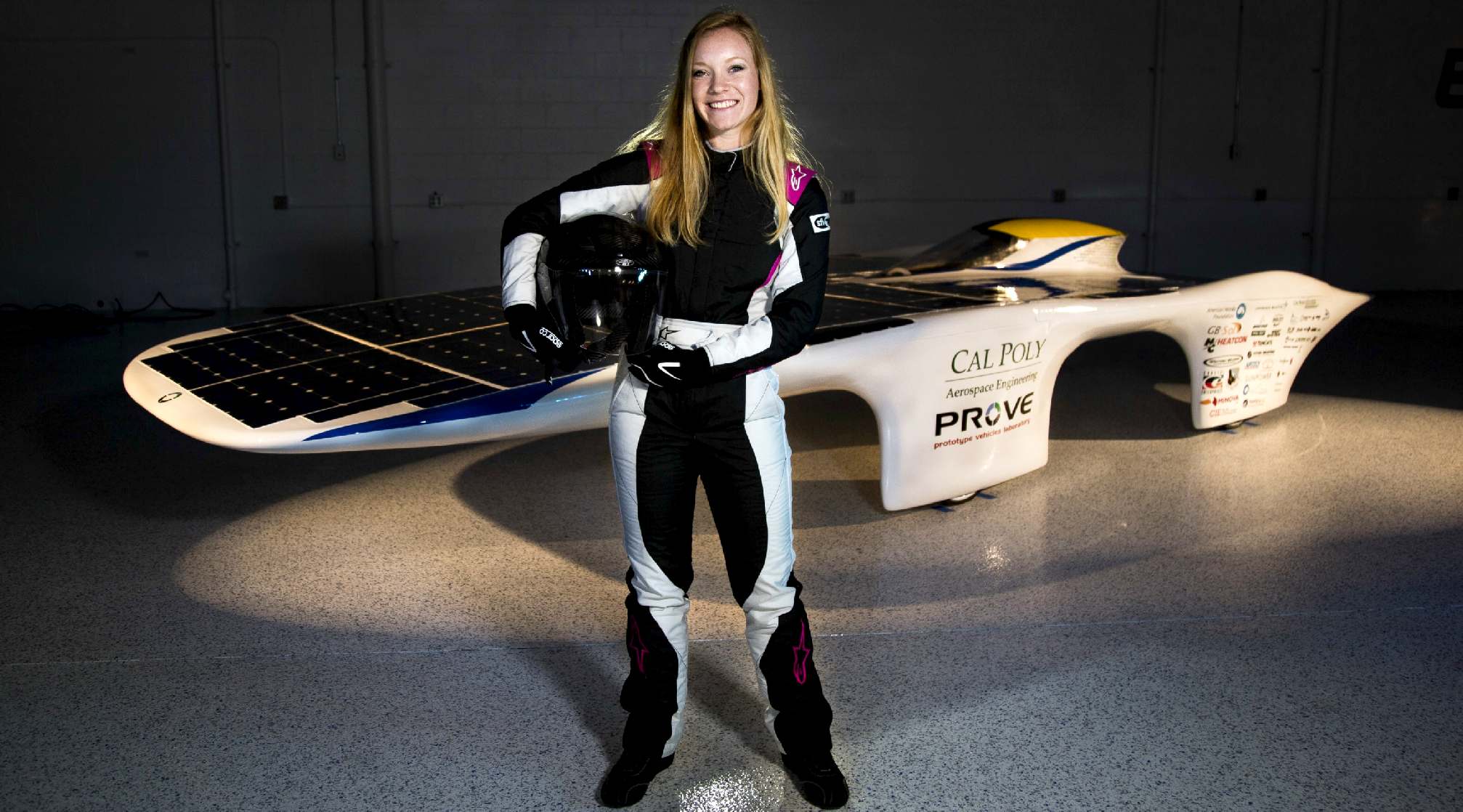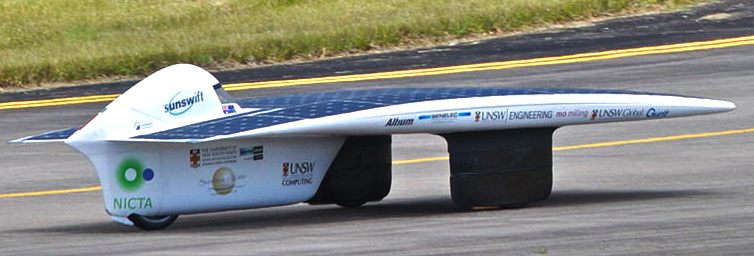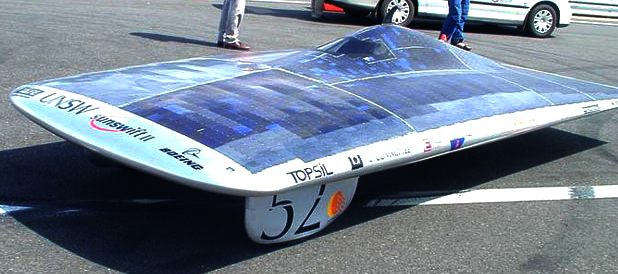|
WORLD'S FASTEST Solar Powered Car 2011
|
|||||
|
HOME | INDEX | AUTOMOTIVE | BLUEPLANET | ELECTRIC CARS | E. CYCLES | SOLAR CARS |
|||||
|
CLIMATE CHANGERS - Guinness World Records recognize a land speed record for vehicles powered only by solar panels. This record is currently held by the Sky Ace TIGA from the Ashiya University. The record of 91.332 km/h (56.75 mph) was set on 20 August 2014 at the Shimojishima Airport, in Miyakojima, Okinawa, Japan. The previous record was held by the University of New South Wales with the car Sunswift IV. Its 25-kilogram (55 lb) battery was removed so the vehicle was powered only by its solar panels. The record of 88.8 km/h (55.2 mph) was set on 7 January 2011 at the naval air base HMAS Albatross in Nowra, breaking the record previously held by the General Motors car Sunraycer of 78.3 kilometres per hour (48.7 mph). The record takes place over a flying 500 metres (1,600 ft) stretch, and is the average of two runs in opposite directions.
This is currently (2011) the fastest known solar powered class 'A' racer. There are two trains of thought when it comes to solar power:-
a) Vehicles with batteries b) Vehicles without batteries
A: Vehicles not having the advantage of batteries may very well have a reduced ability to reach high velocities.
B: Vehicles with battery stores, will have the advantage and should be classified differently, for example an outright class.
Sunswift, the fastest PV panel car UNSW
The UNSW Solar Racing Team (often known as Sunswift after the name of their first race car) is a solar car racing team from the University of New South Wales. The team has built four cars since 1996. The most recent car, Sunswift IVy (or Ivy), is currently the top ranked silicon solar car in the world, following a win in the silicon class at the 2009 World Solar Challenge (WSC).
Sunswift IV, Ivy was built for the 2009 World Solar Challenge. The car surpassed expectations by being the first silicon powered car across the line, coming 4th overall. Jaycar Sunswift III (2005 - 2008)
UNSW Sunswift II (1998 - 2005)
Sunswift (1996)
The original Sunswift vehicle was purchased from the Aurora Vehicle Association in 1996. The car, Aurora QT, was significantly upgraded and improved by the UNSW SRT and renamed Sunswift. A new motor and controller, roll cage, chassis and batteries were added. Sunswift raced in the 1996 World Solar Challenge. The car was still a competitive entry despite its age, placing 9th out of over 40 entries. The experience gained from racing Sunswift inspired the development of Sunswift II starting in 1997.
Sunswift II solar car UNSW
Achievements
1.1996 World Solar Challenge – Sunswift finished 9th out of 46 entries. This was the University’s first entry in a solar car event amongst the prestigious and competitive entries from Honda Motors Corporation, the Swiss entry from Biel, and Mitsubishi Materials Corporation.
Fastest PV panel car Class A
EV LINKS:
Please click on the links above to find out about these famous automotive makers. If your company is not included and you would like to be listed, please let us know.
UK VEHICLE INSURANCE ONLINE A - Z
Solar Cola drinkers make better drivers ......
330ml Earth can - The World in Your Hands
|
|||||
|
AUTOMOTIVE | EDUCATION | SOLAR CAR RACING TEAMS | SOLAR CAR EVENTS | SOLAR CARS |
|||||
|
The content
of this website is copyright © 1991 and 2019 Electrick Publications. All
rights reserved. The bird logo |



